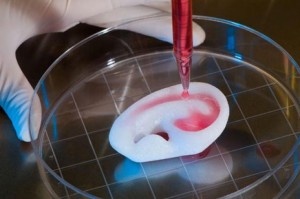Regenerative medicine generally refers to the repair or replacement of damaged human tissues and organs. It primarily focuses on regaining the remarkable regenerative capacity of tissue that all people have before birth. Regenerative medicine which also includes the possibility of growing tissues and organs in the laboratory and safely implanting them when the body cannot heal itself.
Regenerative medicine refers to a group where biomedical approaches to clinical therapies that may involve the use of stem cells. Examples are injection of stem cells or progenitor cells obtained through Directed differentiation (cell therapies); the induction of regeneration by biologically active molecules administered alone or as a secretion by the infused cells (immunomodulation therapy); and transplantation of in vitro grown organs and tissues (tissue engineering).
Regenerative medicine itself isn’t new – the first bone marrow and solid-organ transplants were done decades ago. But advances in developmental and cell biology, immunology, and other fields have unlocked new opportunities to refine existing regenerative therapies and develop novel ones.
The Center for Regenerative Medicine takes three interrelated approaches,
(1) Rejuvenation: Rejuvenation means boosting the body’s natural ability to heal itself.
(2) Replacement: Replacement involves using healthy cells, tissues or organs from a living or deceased donor to replace damaged ones
(3) Regeneration: Regeneration involves delivering specific types of cells or cell products to diseased tissues or organs, where they will ultimately restore tissue and organ function.
Regenerative medicine holds the promise of definitive, affordable health care solutions that heal the body from within.
Regenerative medicine is effective to improve the quality of life for patients all over the world. By using this powerful technology, Scientists work to create new body parts from a patient’s own cells and tissues. Success of these efforts will eliminate the concept of tissue rejection.

